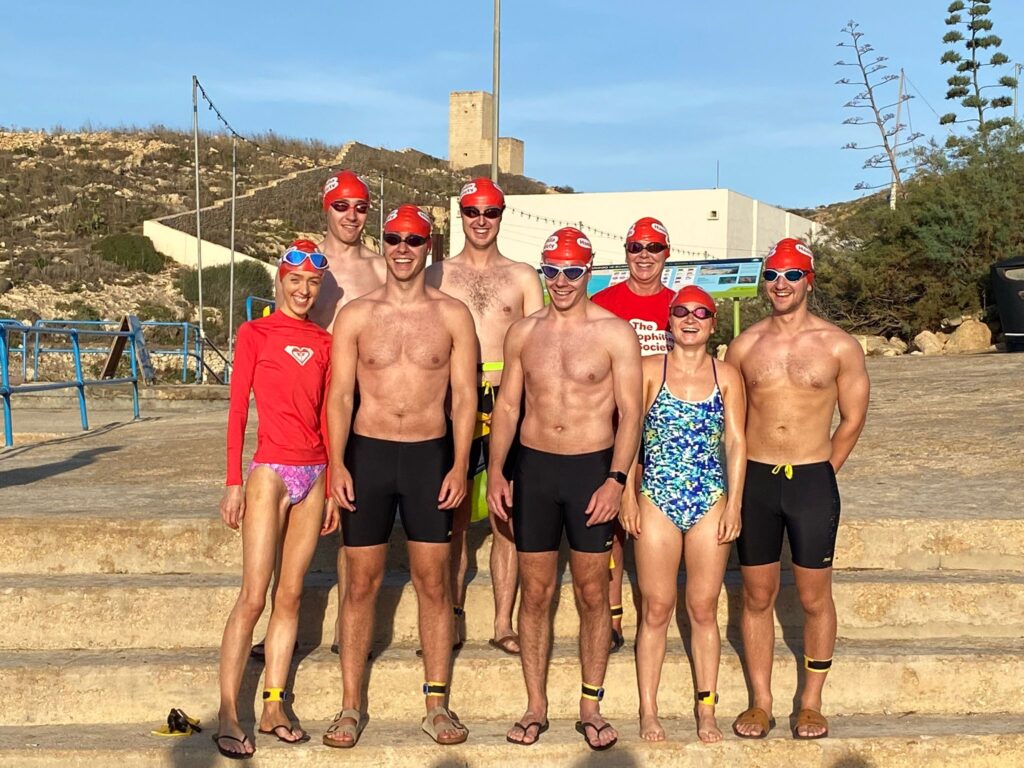Partners
Support, swimming and strategy in Malta
Written by Jeff Courtney, September 26, 2024
We’ve just spent a productive few days in Malta in support of its bleeding disorders society as part of our three-year twinning partnership.
Our twinning project with the Malta Bleeding Disorders Society (MBDS) aims to improve their governance, increase their capacity to support their members and help them advocate for better treatment and care. It is supported with funding from the World Federation of Hemophilia (WFH).
On 20 September a delegation from the Haemophilia Society (THS) went to Malta to lead a weekend of workshops and to take part in a fundraising swim to help MBDS hold a youth camp next summer.
MBDS is the patient-led group representing people with haemophilia and other bleeding disorders in Malta and Gozo. They are fighting for better care, better diagnosis and better treatment options for people with bleeding disorders.
As part of the weekend’s support programme our Chief Executive Kate Burt, Policy and Public Affairs Manager Jeff Courtney and ambassadors Mark Ward and Ross Bennett ran a workshop with the MBDS board to upskill their campaigners. The aim was to develop a bold advocacy strategy to improve access to treatments for people with bleeding disorders in Malta and to improve quality of life for people with bleeding disorders and their families.
Mark and our youth ambassadors also ran a workshop about how to get the best care for yourself by knowing what questions to ask and what options are open to you.
The Maltese health system is very similar to our NHS, albeit on a smaller scale. They have reasonable standards of care and well-resourced hospitals. However, while once seen as world-leading, treatment and care in Malta is falling behind other comparable European countries. They have not been adopting the latest technologies and there is need for urgent improvement in the treatment options provided. In particular, they still use plasma-derived products as the standard of care for most bleeding disorders, including haemophilia A.
Over the three-year project we plan to achieve:
- An increase the number of treatments routinely prescribed in the Malta health system including access to Emicizumab for inhibitors and severe haemophilia A, extended half-life products for haemophilia A and B, non-replacement therapies for other bleeding disorders and increased use of recombinant products
- Increased engagement of their members with MBDS, growing the membership
- More joined-up multi-disciplinary care for people with bleeding disorders including sufficient access to physiotherapy, psychology, dentistry, surgery, specialist nursing, obstetrics and gynaecology and genetic counselling and testing.
- Improved diagnosis and care for people with platelet disorders
So far we have worked with our colleagues in Malta to create a picture of the key people and organisations that can make the changes they need. In the coming months they will be writing to the health minister, seeking an urgent meeting. We will present the health ministry with data on the challenges faced by people with bleeding disorders, the benefits of new technologies and how this could be cost-saving for the Maltese health system. Malta has just joined the PROBE study on the burden of living with haemophilia to allow us to produce the data to illustrate the need for change.
We will continue to work with the board over the next two years with lobbying and awareness raising events planned for World Haemophilia Day next year and further parliamentary and government activity and engagement.

We are proud to say that a group of eight people from THS completed the Malta to Gozo swimming challenge, covering just over 6km in three hours. The money they raise will help fund Youth Camp for young people with a bleeding disorder in Malta, and their siblings, in 2025. To donate, follow this link: https://www.justgiving.com/campaign/maltaswim